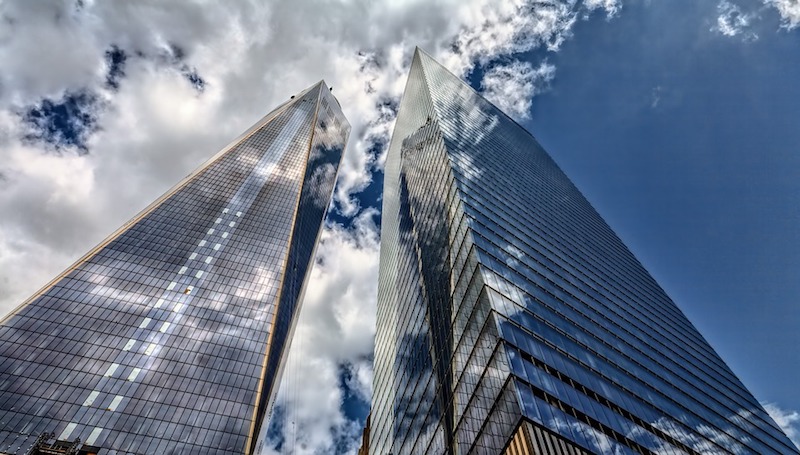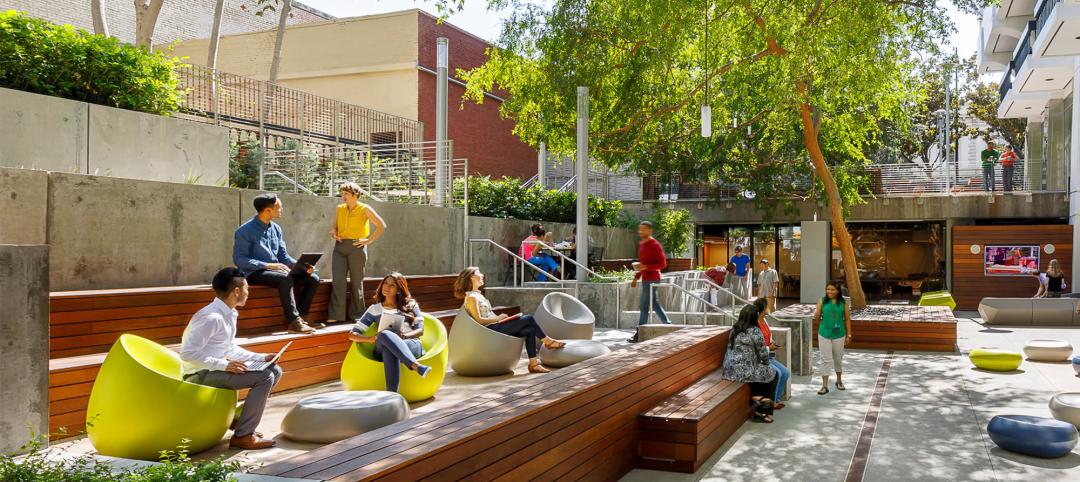Office workers value flexible working options more than any other employment benefit, but there are crucial differences between what men and women want from their employer according to new research released from Ambius, experts in interior landscaping.
A survey of 1,000 office workers in the US and UK found that men value health insurance above any other work perk, whereas women would prefer more flexibility in their office job, such as options for remote working or adaptable hours.
Health insurance is four times more important to US office workers (41%) than office workers in the UK (11%), where health care is often taken for granted by many employees due to the existence of the UK’s National Health Service (NHS).
US office workers in southeastern states (51%) value health care more than workers anywhere else in the country, whereas midwestern workers (23%) value vacation leave significantly more than workers on the west coast (9%).
One thing office workers agree on is the importance of office environment to their overall job satisfaction, with 90% of employees saying that the layout and design features of their office is a major factor in whether they are happy at work.
Half of office workers (50%) say they would not accept a job offer without looking at the workspace. Men appear to be a little more interested in their workspace than women, with 40% of men saying they have declined a job offer because they didn’t find the office space attractive or appealing compared to 34% of women.
Play areas are twice as important to men (9%) than women (4%), while people who work in accounting, banking and finance are twice as likely (22%) to crave bright colors than health care workers (10%) or people in public services and administration (9%).
Energy and utility workers say they value hot drinks and complimentary beverages more than any other benefit, including health care and vacation leave.
Office workers spend less time outdoors than prisoners
Within this research, Ambius revealed that that office workers spend just 47 minutes outside during a typical working day, which is less than prisoners, who require at least one hour of outdoor exposure each day, according to UN guidelines.
One-in-three office workers (35%) spend no more than 15 minutes outside during their working day, while only 26% say they spend more than an hour outside each day, excluding time spent commuting.
It is, therefore, not surprising that most office workers (64%) say that natural lighting is a highly-important office feature. However, despite this lack of outdoor exposure, only 18% of office workers believe that outside areas are important to their job satisfaction.
Ambius encourages companies who are prioritizing talent recruitment and retention to explore workplace design improvements that facilitate better health and well-being.
Related Stories
Adaptive Reuse | Mar 30, 2024
Hotel vs. office: Different challenges in commercial to residential conversions
In the midst of a national housing shortage, developers are examining the viability of commercial to residential conversions as a solution to both problems.
Sustainability | Mar 29, 2024
Demystifying carbon offsets vs direct reductions
Chris Forney, Principal, Brightworks Sustainability, and Rob Atkinson, Senior Project Manager, IA Interior Architects, share the misconceptions about carbon offsets and identify opportunities for realizing a carbon-neutral building portfolio.
Office Buildings | Mar 28, 2024
Workplace campus design philosophy: People are the new amenity
Nick Arambarri, AIA, LEED AP BD+C, NCARB, Director of Commercial, LPA, underscores the value of providing rich, human-focused environments for the return-to-office workforce.
Office Buildings | Mar 27, 2024
A new Singapore office campus inaugurates the Jurong Innovation District, a business park located in a tropical rainforest
Surbana Jurong, an urban, infrastructure and managed services consulting firm, recently opened its new headquarters in Singapore. Surbana Jurong Campus inaugurates the Jurong Innovation District, a business park set in a tropical rainforest.
Adaptive Reuse | Mar 26, 2024
Adaptive Reuse Scorecard released to help developers assess project viability
Lamar Johnson Collaborative announced the debut of the firm’s Adaptive Reuse Scorecard, a proprietary methodology to quickly analyze the viability of converting buildings to other uses.
Sustainability | Mar 21, 2024
World’s first TRUE-certified building project completed in California
GENESIS Marina, an expansive laboratory and office campus in Brisbane, Calif., is the world’s first Total Resource Use and Efficiency (TRUE)-certified construction endeavor. The certification recognizes projects that achieve outstanding levels of resource efficiency through waste reduction, reuse, and recycling practices.
Office Buildings | Mar 21, 2024
Corporate carbon reduction pledges will have big impact on office market
Corporate carbon reduction commitments will have a significant impact on office leasing over the next few years. Businesses that have pledged to reduce their organization’s impact on climate change must ensure their next lease allows them to show material progress on their goals, according to a report by JLL.
Adaptive Reuse | Mar 21, 2024
Massachusetts launches program to spur office-to-residential conversions statewide
Massachusetts Gov. Maura Healey recently launched a program to help cities across the state identify underused office buildings that are best suited for residential conversions.
Office Buildings | Mar 21, 2024
BOMA updates floor measurement standard for office buildings
The Building Owners and Managers Association (BOMA) International has released its latest floor measurement standard for office buildings, BOMA 2024 for Office Buildings – ANSI/BOMA Z65.1-2024.
Sustainability | Mar 13, 2024
Trends to watch shaping the future of ESG
Gensler’s Climate Action & Sustainability Services Leaders Anthony Brower, Juliette Morgan, and Kirsten Ritchie discuss trends shaping the future of environmental, social, and governance (ESG).

















